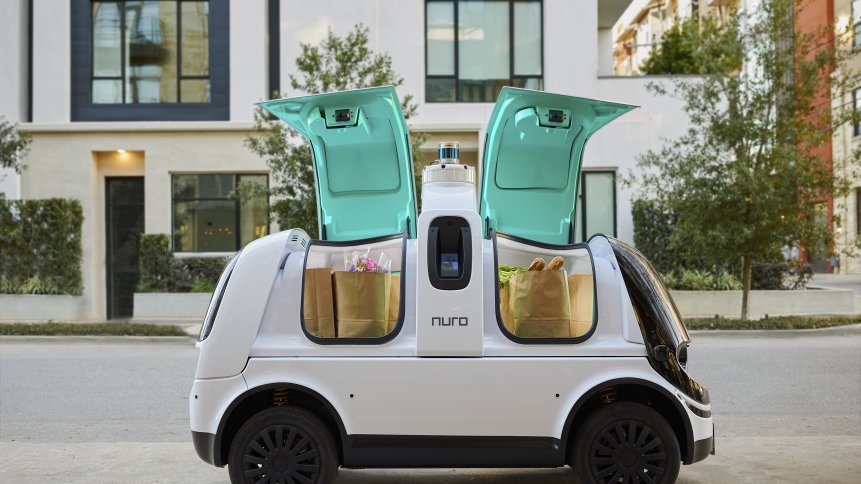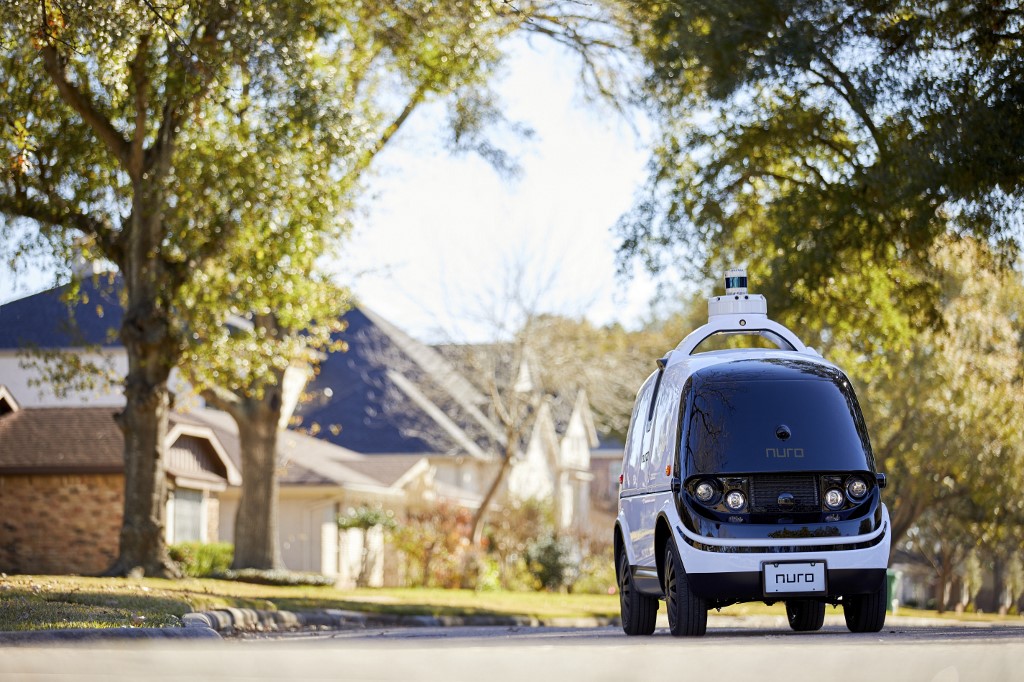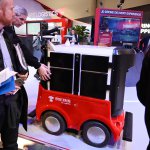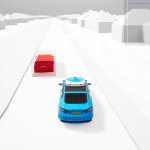Nuro brings driverless deliveries a step closer

Nuro, an autonomous driving solutions startup, just got the green light to test their autonomous vehicles (AVs) in California. Founded by two former Google engineers, the company is one of two, along with another company called Waymo, to receive a driverless permit in the state.
The AV solutions company has already started self-driving food delivery trials in Arizona and Texas. Now, the company has been given a permit to do the same in nine Bay Area cities.
Nuro is the first company to receive the coveted FMVSS exemption from the US Department of Transportation that essentially allows them to operate. In other words, they’ve been granted permission to produce and test vehicles that aren’t intended for human drivers.
What makes Nuro’s autonomous vehicles exceptionally unique is that their actual design takes drivers out of the equation entirely. Vehicles are egg-shaped, with no room for any human inside. It’s driverless by default and design.
Unlike other AVs, where autonomous vehicles follow the design and form of regular cars, followed by tests and trials beginning with a human drivers, eventually phasing them out, Nuro’s vessels exist unto themselves.
Another company that’s testing out the driverless-by-design concept is Cruise. Their self-driving car service strips its vehicles of steering wheels, wing mirrors, pedals, and other parts that make up what one would recognize as an automobile.

The R2 self-driving delivery vehicle driving in Houston, Texas. Source: AFP
Electric shuttle buses are built specifically to fit an increased number of passengers comfortably after freeing up the space intended for a driver’s seat. Nuro’s egg-shaped vehicles are also built for to handle a range of deliveries. Last year, the California startup inked a partnership with mega-company Walmart to kick start grocery deliveries, steering the services offered by autonomous vehicles into a new direction of services.
The company’s latest developments will allow them to initiate more trials and exercise the potential they have for other uses. Moving forward with their business plan, the next destination for the AV startup is to team up with local businesses in order to more widely use their self-driving technologies.
The company’s chief counsel, David Estrada, shared in a blog post, “Our first plan is to make free deliveries to select customers in Mountain View and the surrounding area. This will allow us to launch a formal delivery service in partnership with local brands and retailers.”
An industry thriving amid COVID-19
Although trials for autonomous deliveries have been put on a temporary pause until the virus crisis is brought under control, gaining the license to operate in California – a state known to have classified laws and regulations catered for AV development – is a big win.
Other companies affected by the hold on autonomous driving trials include Waymo, Aurora, Pony.ai, and Uber. As a direct response to the ongoing pandemic, driverless vehicle programs have been suspended.
YOU MIGHT LIKE

Autonomous deliveries flex tech muscles amid outbreak
In the midst of heightened concern over physical proximity, AVs provide a tenable solution to social distancing. An industry taking note of these developments is healthcare, where they have already spotted the potential of having roving driverless cars able to transport medical supplies and medicine.









